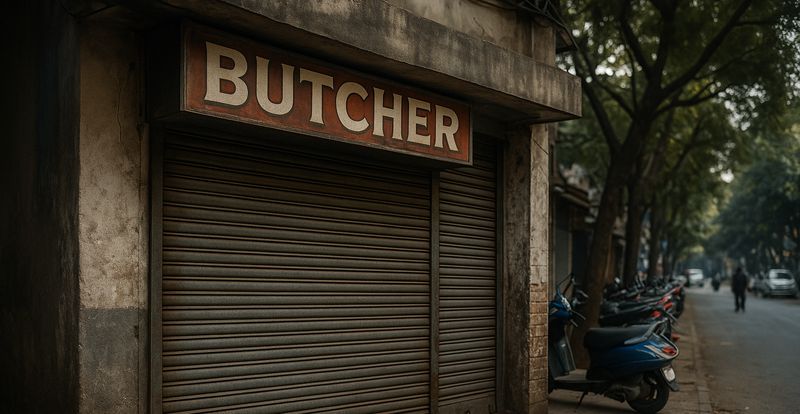
Published in News
Bengaluru Outlaws Meat for 24 Hours
Bengaluru will implement a one-day ban on meat sales and slaughter on November 25, 2025 in observance of a religious and cultural anniversary.

Martina Osmak
Director of Marketing
On November 25, 2025, the Greater Bengaluru Authority (GBA) will enforce a ban on the sale of meat and slaughter of animals within its jurisdiction.
This means that for that day:
No meat sales by retail butcher shops are allowed.
Slaughterhouses are prohibited from conducting animal slaughter operations.
The action applies across the city area defined by the GBA.
Reasoning:
The date coincides with the birth anniversary of Sadhu T. L. Vaswani (November 25), who was a spiritual leader and advocate of vegetarianism.
Moreover, this date is marked globally as International Vegetarian Day and International Meatless Day.
Implications for meat-industry professionals:
Suppliers, processors and retailers in Bengaluru will need to plan inventory and operations with this ban in mind for November 25.
Retail operations for that day will be required to suspend meat sales — staffing, logistics and customer communication should reflect this.
Slaughterhouses must halt animal slaughter on the designated day; this could require rescheduling of supply or slaughter slots.
While the prohibition is time-limited (one day) it may affect upstream supply chains (live animals, transport, chilled meat stock) and downstream retail demand for that day.
For those operating in adjacent regions, it may influence cross-border flows of meat or live animals (either inbound or outbound) as the day may shift demand or supply patterns temporarily.
Context and operational considerations:
The ban is not framed as a permanent regulatory change for the industry, but rather a one-day measure tied to cultural observance.
Businesses may need to anticipate and adapt to changes in customer behaviour (e.g., shift of purchases to the day before or day after) and adjust staffing and inventory accordingly.
While the stated reasoning is religious/cultural, there may also be indirect operational effects: increased demand for non-meat protein alternatives (though this is incidental to the policy) as noted in the reporting.
Compliance: ensure that local licensing, slaughterhouse operations and retail permissions align with the prohibition for the day.
Conclusion:
For meat-industry stakeholders in Bengaluru, the November 25 meat-sale and slaughter ban is a scheduled, one-day operational constraint dictated by the Greater Bengaluru Authority in line with cultural observance. While not a structural policy shift, it demands forward planning to mitigate supply, sales and logistics disruption on that date.
